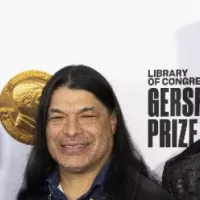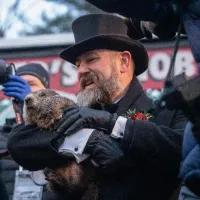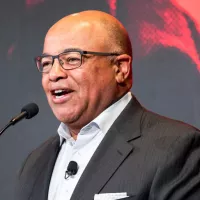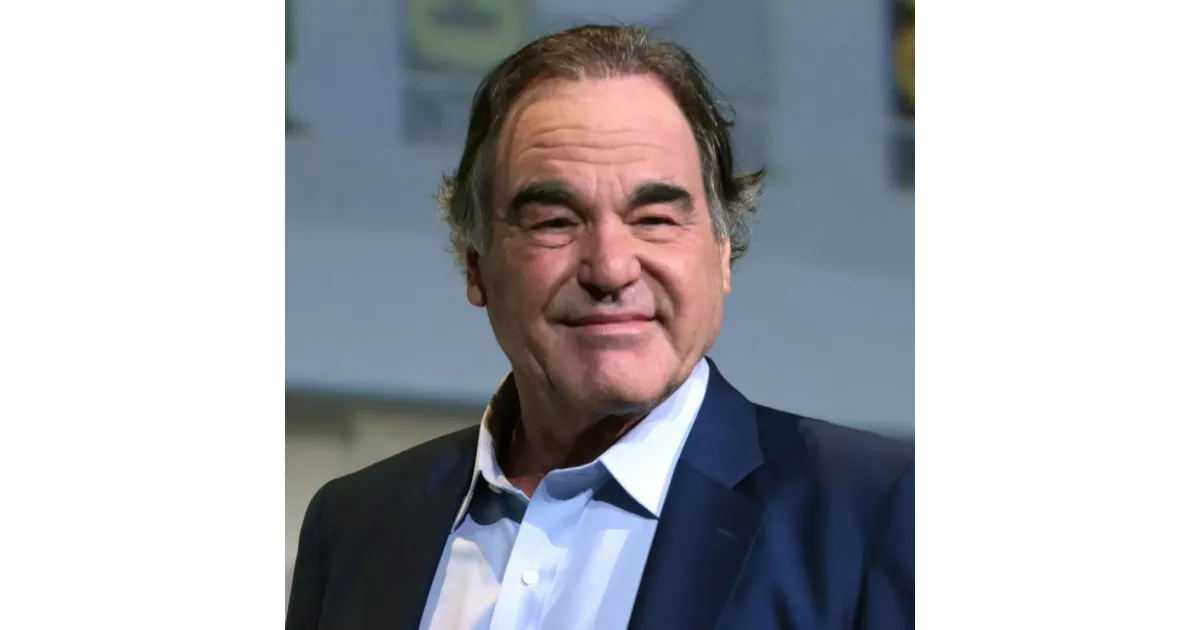Public opinion and media debates around Oliver Stone—discover key moments of controversy.
Oliver Stone is a highly acclaimed American filmmaker known for directing impactful and often controversial films. He frequently explores themes of war, politics, and historical events. Stone has been recognized with numerous awards, including multiple Academy Awards, a BAFTA, an Emmy, and several Golden Globes, solidifying his status as a significant figure in the film industry.
1991: Melissa Gilbert accused Stone of sexual harassment
In 1991, Melissa Gilbert accused Oliver Stone of sexual harassment during an audition for 'The Doors', claiming he told her to get on her hands and knees and say, "Do me baby." Stone denied the accusation.
1997: Signed open letter protesting treatment of Scientologists in Germany
In 1997, Oliver Stone was among 34 celebrities who signed an open letter to German Chancellor Helmut Kohl, published in the International Herald Tribune, protesting against the treatment of Scientologists in Germany.
1999: Arrested for DUI and drug possession
In 1999, Oliver Stone was arrested for driving under the influence of alcohol and possession of drugs, including fenfluramine, phentermine, meprobamate, and a small amount of hashish. He pleaded guilty to driving while intoxicated and was ordered into a rehabilitation program.
2000: Suggested link between 9/11 and 2000 election
In 2000, Oliver Stone suggested a link between the controversies of the 2000 election and the events of 9/11.
May 27, 2005: Arrested for marijuana possession
On the night of May 27, 2005, Oliver Stone was arrested in Los Angeles for possession of marijuana and was released the next day on a $15,000 bond.
August 2005: Pleaded no contest to marijuana possession
In August 2005, Oliver Stone pleaded no contest to the charge of marijuana possession and was fined $100.
January 2010: Discussed Hitler at a press conference
In January 2010, during a press conference for his documentary series on U.S. history, Oliver Stone commented on Hitler and Stalin, leading to controversy.
July 25, 2010: Controversial comments about Hitler and Jewish people in The Sunday Times
On July 25, 2010, Oliver Stone made controversial comments about Hitler and Jewish people in an interview with The Sunday Times, resulting in criticism from Jewish groups.
June 2012: Signed petition for Assange's asylum bid
In June 2012, Oliver Stone signed a petition in support of Julian Assange's bid for political asylum, showing his continued support for the WikiLeaks founder.
August 2012: Co-authored op-ed with Michael Moore on WikiLeaks
In August 2012, Oliver Stone co-authored a New York Times op-ed with Michael Moore, emphasizing the importance of WikiLeaks and free speech.
April 2013: Visited Assange and criticized WikiLeaks documentaries
In April 2013, Oliver Stone visited Julian Assange in the Ecuadorian Embassy. He also criticized the documentary "We Steal Secrets: The Story of WikiLeaks" and the film "The Fifth Estate," arguing that they victimized Assange.
June 2013: Appeared in video supporting Chelsea Manning
In June 2013, Oliver Stone and other celebrities appeared in a video to show their support for Chelsea Manning.
2013: Russia passed "gay propaganda" law
In 2013, Russia passed a law banning "gay propaganda" to minors, which has been criticized for being used for a crackdown on LGBTQ support.
December 2014: Supported Russian narrative on Ukraine
In December 2014, Oliver Stone made statements supporting the Russian government's narrative on Ukraine, portraying the 2014 Ukrainian Revolution of Dignity as a CIA plot and defending Viktor Yanukovych.
2016: Year of the US Presidential election
In 2016, the year of the US Presidential election, Oliver Stone later rejected the narrative that Russia sought to influence the election.
June 2017: Rejected narrative of Russian influence in 2016 election
In June 2017, during an interview with The Nation to promote his documentary on Vladimir Putin, Oliver Stone rejected the U.S. intelligence agencies' narrative that Russia sought to influence the 2016 presidential election, accusing the CIA, FBI, and NSA of fabricating intelligence.
October 2017: Stone Quits Guantanamo Project
In October 2017, Oliver Stone quit the Guantanamo television series project after sexual misconduct allegations surfaced against Harvey Weinstein.
2017: Carrie Stevens alleged sexual assault in 1991
In 2017, former Playboy model Carrie Stevens alleged that in 1991, Oliver Stone grabbed her breast at a party.
April 2018: Compared Donald Trump to Beelzebub
In April 2018, Oliver Stone likened Donald Trump to "Beelzebub" at a press conference in Tehran.
2019: Commented on Russia's "gay propaganda" law
In 2019, during an interview with Vladimir Putin, Oliver Stone commented on Russia's 2013 "gay propaganda" law, stating that "It seems like maybe that's a sensible law."
2021: Release of Qazaq: History of the Golden Man
In 2021, Oliver Stone produced and featured in Qazaq: History of the Golden Man, a miniseries about Kazakh politician Nursultan Nazarbayev, which faced criticism for its positive portrayal of Nazarbayev.
Mentioned in this timeline

Donald John Trump is an American politician media personality and...

Bernie Sanders is a prominent American politician currently serving as...

Vladimir Vladimirovich Putin is a Russian politician and former intelligence...

Barack Obama the th U S President - was the...

Bill Clinton the nd U S President - served as...
Ukraine is a country in Eastern Europe the second-largest on...
Trending

43 minutes ago Travis Kelce and Taylor Swift's relationship update: Hockey, wedding, and keeping things private.

2 hours ago Metallica Announces Sphere Las Vegas Residency: 'Life Burns Faster' Concert Series in 2026

3 hours ago Priyanka Chopra Jonas stars in 'The Bluff,' a gritty pirate action movie.

3 hours ago Lupita Nyong'o Shares Fibroid Struggle, Advocates for Women's Health in New Campaign

5 hours ago Souvenir Shop Manager Reflects on Final Groundhog Day with Punxsutawney Phil

5 hours ago Mike Tirico's Inspiring Olympic Sign-Off: A Look at His Legacy in Sports Broadcasting.
Popular

Jesse Jackson is an American civil rights activist politician and...

Susan Rice is an American diplomat and public official prominent...

Barack Obama the th U S President - was the...

Michael Joseph Jackson the King of Pop was a highly...

XXXTentacion born Jahseh Dwayne Ricardo Onfroy was a controversial yet...

Bernie Sanders is a prominent American politician currently serving as...
